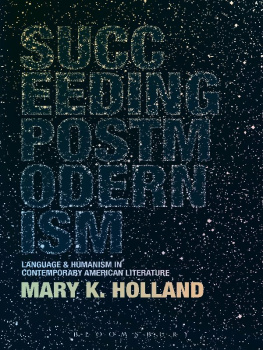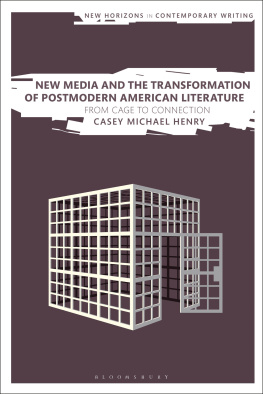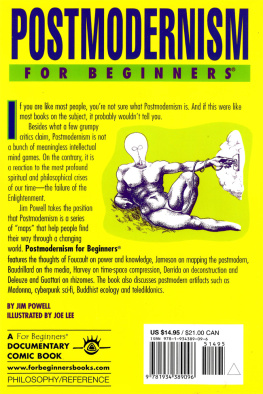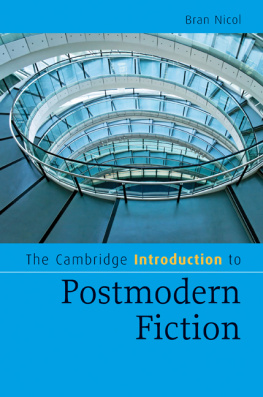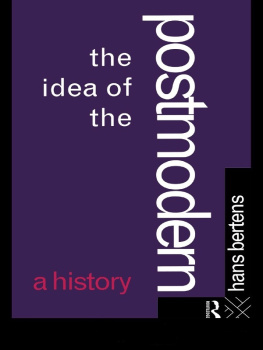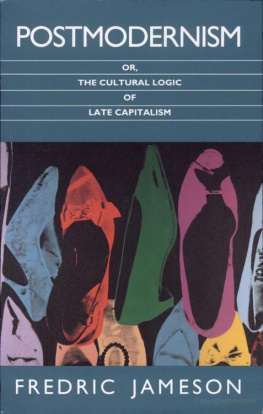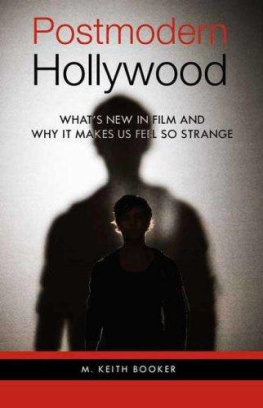Succeeding Postmodernism
Language and Humanism in
Contemporary American Literature
Mary K. Holland

Bloomsbury Academic
An imprint of Bloomsbury Publishing Plc
175 Fifth Avenue New York NY 10010 USA
50 Bedford Square London WC1B 3DP UK
www.bloomsbury.com
First published 2013
Mary K. Holland, 2013
All rights reserved. No part of this publication may be reproduced or transmitted in any form or by any means, electronic or mechanical, including photocopying, recording, or any information storage or retrieval system, without prior permission in writing from the publishers.
Most of was previously published as A Lamb in Wolf s Clothing: Postmodern Realism in A. M. Homess Music for Torching and This Book Will Save Your Life, in Critique: Studies in Contemporary Fiction 53.3 (2012): 21437.
No responsibility for loss caused to any individual or organization acting on or refraining from action as a result of the material in this publication can be accepted by Bloomsbury Academic or the author.
Library of Congress Cataloging-in-Publication Data
Holland, Mary, 1970
Succeeding postmodernism: language and humanism in contemporary American literature / [Mary Holland].
pages cm
Includes bibliographical references and index.
ISBN 978-1-4411-3061-7 (hardcover: alk. paper) 1. American fiction21st centuryHistory and criticism. 2. Language and languages in literature. 3. Humanism in literature. 4. Postmodernism (Literature)United States. I. Title.
PS374.L29H65 2013
816.609dc23
2012038629
ISBN: 978-1-4411-2189-9
For Evan and Camden
who never let me forget what is real
Contents
The argument of this book gathers ideas discovered at far-flung places and times over the past several years of my encounters with literature, collecting as well the influences of the many teachers, students, colleagues, and friends I have been lucky enough to discuss it with. I thank Vince Pecora and Kate Hayles for the rigor and insight that fostered the books beginnings, and Chris Mott for helping me see where the book began at all. Endlessly, I thank Dennis Huston for showing me the life literature can lead to, and which led to this book. Perhaps this project began when Jack Zammito taught me, on my first day as a humanities student, to read literature exactly as Sontag would advise when I found her twenty years later.
To all the students who endured repeated deployments of these arguments, and helped me shape and sharpen them with their own astute questions, inventive readings, and contagious excitement about them, my deepest appreciation. Much of what I have come to in my criticism grew out of these fecund, challenging, and transforming interactions in the classroom. May it always be thus.
Early drafts benefited greatly from thoughtful feedback generously given by colleagues and friends, especially Andrew Higgins, who introduced me to Gumbrecht and is always up for a good talk about aesthetics; Jeffrey Fisher, who expanded my scope past postmodernism and many times lent his patient ear and eye; Kirsten Wasson, whose early response to a chapter convinced me I had a book worth finishing; and Stephen Burn, whose enthusiasm about my work told me I had one worth publishing.
I am enormously grateful to the United University Professions and SUNY for enabling the semester of leave without which this project might never have seen completion. Also, I thank the sisters at Linwood for providing the place in whose profound peace I worked on several stages of this book, as well as Tom Olsen and the New Paltz English department for allowing those indispensable retreats. Dilige, et quod vis fac.
Finally, my thanks to those whose support of various nonacademic kinds shepherded the rest of my life as it unfolded complicatedly around this book: my parents; extended family Eve and John; again and abidingly, Kirsten and Jeff; and my boys, Evan and Camden, who remind me why I care so much about the arguments I make in this book, and then remind me to stop arguing and go play.
Introduction:
Writing Postmodern Humanism
There is the irony that, in a sense, we are all humanists.
We experience the world as humanists, but this is not necessarily the way we theorize.
Madan Sarup
In an intellectual climate of hyperperiodization, Benjamins alarm clock resolutely ringing, it should come as no surprise that millennial arrival set off a clamoring about new ends and beginnings in theory and literature. A decade in and the twenty-first century does not disappoint: critics and theorists from feminist to political to comic, and certainly including literary, are declaring the end of postmodernism, and beginning, with however mountainous qualifications, to consider what is coming next. The sheer volume of prose devoted to such a position indicates that something significant indeed is changing in art, culture, theory, and literature. And literatureno longer satisfied with reproducing the disaffected irony and language games that long caused readers to characterize postmodern literature as heartless and meaninglessmakes its own vehement demand to be read and understood differently. But what exactly is changing? How may we most productively characterize these changes, and understand them in the context of the literature and theory out of which they develop? And does this moment of change really mark the end of postmodernism? This book addresses these questions by examining not just the literature and theories of the current century but equally those of the late twentieth century out of which they evolved.
Ian Watt has written that the novel grew out of new social conditions in which the autonomous individual prospered or failed by competing against others in social situations.that have not been seen clearly since poststructuralism shattered both in the middle of the past century. Succeeding Postmodernism identifies this dramatic evolution in twenty-first-century American fiction while locating its origins in a needed rereading of the fiction of the late twentieth century.
Essentially this book is interested in our changing ideas about the relationship between language and the human, and about uses of representation to depict the human in language. But in order fairly to consider how or whether such changes signal the end of literary postmodernism, we must first see clearly this relationship between language and the human in postmodern literature, and I will argue that we have not yet done so. Rather, we have often mischaracterized postmodern literatureespecially fiction that takes as its starting point the language problems described by deconstruction theoryas unable to represent or care about the things that literature has traditionally cared most about: human relationships, emotional interaction with the world, meaning. It is the problem of language, the thinking goes, that the irreparable rift between signifier and signifiedword and meaningleaves language unable to represent meaningful affect, and literature that interrogates signification unable to care about the literary elements, like narrative arc and character development, that enable texts to construct meaning. Thus, we tend to read late twentieth-century literature as essentially antihumanistic, and with all the distaste that such a term implies. The first half of this book examines postmodern novels that struggle with just this problem of using antihumanistic language to signify affect, communication, and connection between human beings, especially within families. In its second half, beginning with Danielewski, it argues that novels of the first decade of the twenty-first century move from struggle to success, retaining the conviction that we are born into a linguistically determined world, while constructing new avenues toward meaning and meaningful human connection through signification and mediation themselves. These novels do so by redefining our concepts of what language is, how it works, and how fiction can harness it toward newly productive ends.

